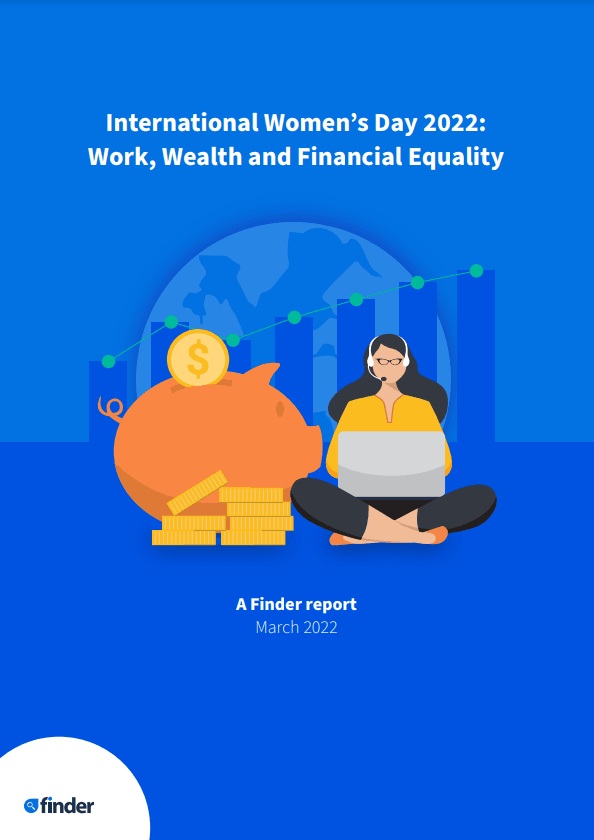 International Women's Day is a time to celebrate and reflect on the status of women. It's a time to look at the steady but slow progress that has been made towards equality and an opportunity to highlight the issues women face that still need addressing. In the past 12 months, we have seen many brave Australian women speak up and call for change and reform. With the extra pressure the pandemic has had on women's finances, this year has been a sobering reminder of the road ahead.
International Women's Day is a time to celebrate and reflect on the status of women. It's a time to look at the steady but slow progress that has been made towards equality and an opportunity to highlight the issues women face that still need addressing. In the past 12 months, we have seen many brave Australian women speak up and call for change and reform. With the extra pressure the pandemic has had on women's finances, this year has been a sobering reminder of the road ahead.
In this report, we focus on 3 major elements of the gender gap: household finances, wealth and work. We delve into the impacts of COVID-19 and speak to Finder's female experts who share their thoughts and advice on how to overcome gender inequality in money. Using Finder's Consumer Sentiment Tracker, an ongoing survey of more than 34,000 Australians, we build on our insights from previous years and make historical comparisons on the wealth gap.
Download the full report here.
Watch Finder's expert panel discuss the report findings

Snapshot: Gender-based personal finance differences in Australia
Key findings
Women are better at saving and managing debt
- On average, male credit card holders are carrying $1,741 in debt accruing interest, which is 16% more than women ($1,499).
- Men (12%) are more likely than women (4%) to have used pay-on-demand services such as Beforepay.
- Finder's Consumer Sentiment Tracker shows women (38%) have a higher savings rate than men (20%) on average.
- Men (31%) are only slightly more likely than women (28%) to have faced a late payment fee. However, those who have also pay considerably higher late fees.
Motherhood puts women at a disadvantage
- On average, men retire with 26% more super than women according to the Association of Superannuation Funds of Australia.
- The average woman would have to supplement an extra $236 per month into her super or work an extra 11 years to retire with the same super balance as men.
- Taking just 1 year of parental leave from full-time work will cost the average female $16,800 in lost super. If the mother chooses to work a 4-day week for the first 2 years of the child's life, that figure increases to $39,500 in lost super.
The investing "confidence gap" explains lower rates of investing in women
- More than a third (37%) of gen Z women think cryptocurrency is a good investment, but only 23% own any. On the other hand, 53% of gen Z men invest in cryptocurrency, which is more than the 47% who think it is a good investment.
- A Finder quiz found women actually knew more about cryptocurrency than men, and yet they are less likely to invest.
- In financial literacy tests, women are more likely than men to select the "I don't know" option. However, when there is no "I don't know" option, they are more likely to choose the correct answer.
The salary "negotiation gap" is part of the pay disparity problem
- The gender pay gap is larger in jobs where salary is determined by individual negotiation (18.4%) rather than by award or collective agreement (13.9%).
- Harvard research has found that Australian women ask for pay rises as frequently as men but are less likely to receive one.
- Female employees who say "no" to requests at work are criticised more harshly than men. In the job application process, a study found that men who displayed confidence were more likely to be perceived positively. Women who displayed confidence were more likely to be seen as lacking social skills.
- Women are more likely to volunteer for, be asked to perform and accept "low-promotability" tasks.
Ask a question
More guides on Finder
-
Renting vs. Owning in Australia
Finder's Property Investment Index predicts price growth in each suburb across Australia's major cities.
-
Economic snapshot: 5 things to watch this month
Get up to speed with the latest economic update, offering insights into Australia's financial landscape.
-
Finder’s Cost of Living Pressure Gauge
Finder's Cost of Living Pressure Gauge measures the financial stress experienced by Australian households.
-
Finder Consumer Positivity Index
Tracking how Australian consumers feel about the economy and their financial lives.
-
Finder’s Property Investment Index Hobart
Finder's Property Investment Index predicts price growth in each suburb across Australia's major cities. Find out how your suburb stacks up.
-
Finder’s Property Investment Index Adelaide
Finder's Property Investment Index predicts price growth in each suburb across Australia's major cities. Find out how your suburb stacks up.
-
Finder’s Property Investment Index Perth
Finder's Property Investment Index predicts price growth in each suburb across Australia's major cities.
-
Finder’s Property Investment Index Brisbane
Finder's Property Investment Index predicts price growth in each suburb across Australia's major cities.
-
Finder’s Property Investment Index Sydney
Finder's Property Investment Index predicts price growth in each suburb across Australia's major cities.
-
Finder’s Property Investment Index Melbourne
Finder's Property Investment Index predicts price growth in each suburb across Australia's major cities. Find out how your suburb stacks up.
